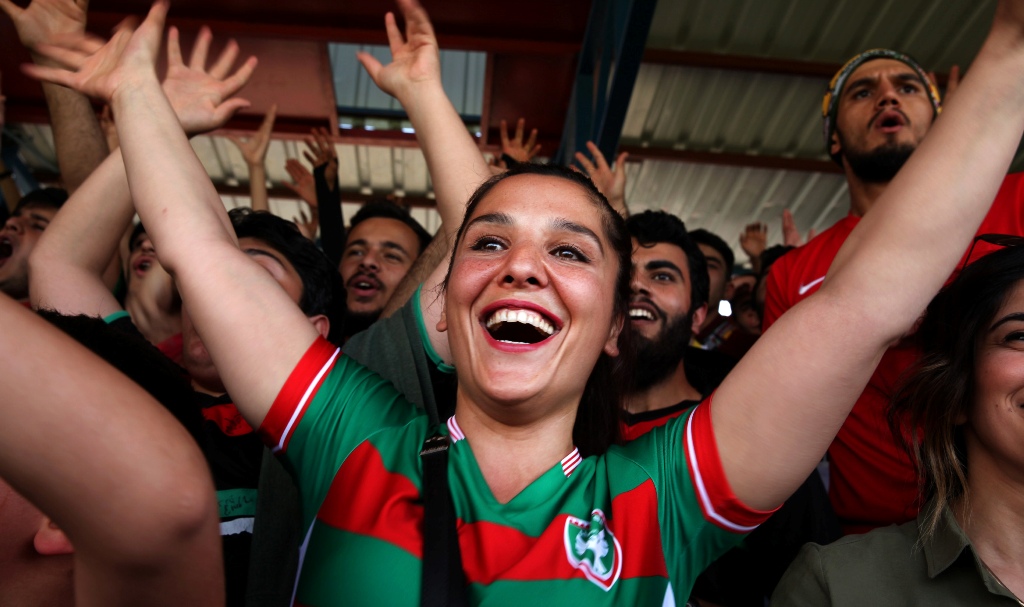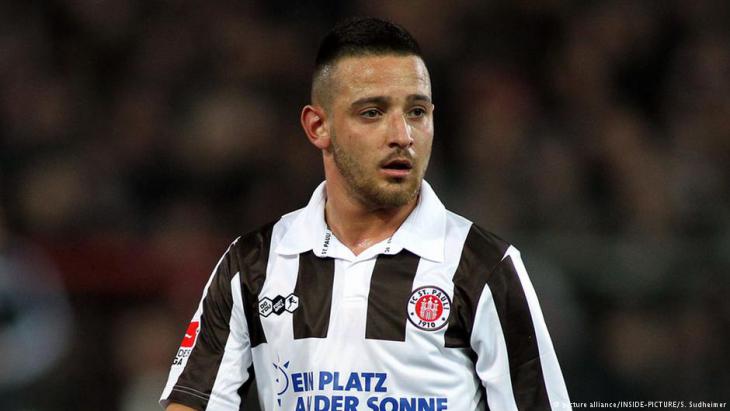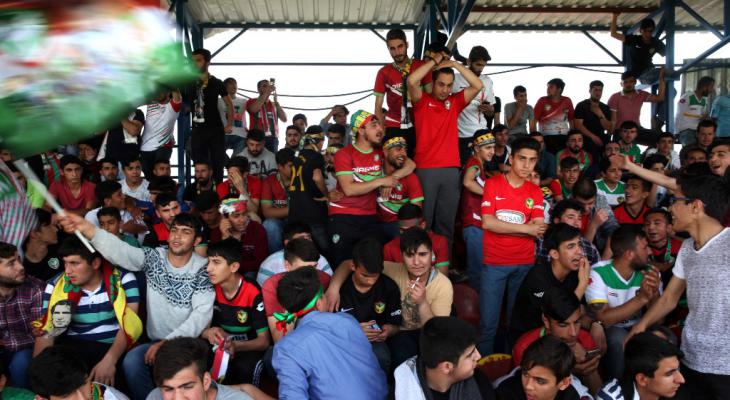"Disciplinary measures are unfortunately part of our team identity"

Their luck ran out just when they needed it most: in the 90th minute, Amed SK (also known in Turkey as Amedspor) conceded the 1-1 equalizer in Erzurum, thereby just missing out on promotion to the Second League.
But on the whole, the season was a sporting success for the soccer club from the south-east Anatolian town of Diyarbakir, which made it as far as the semi-final despite all the repressive measures imposed on it and a series of setbacks that included the tragic death in a traffic accident of the team captain Şehmus Özer late last year.
Kurdish symbol and beacon of hope in difficult times
The club was bought by the Diyarbakır municipal administration back in 1990. In 2015, it changed its name to Amed SK (Amed Sportif Faaliyetler Kulübü), reflecting the Kurdish name of the city. However, it is only in recent years that the team, whose fans dress in the Kurdish colours of red, yellow and green, has increasingly been perceived as representing the Kurdish minority.

"When Amedspor beat First League team Bursaspor in its home city last year, Kurds from Batman to Hakkari celebrated, as though it were their own local team. Amedspor has become a platform for Kurdish identity," says Amedspor spokesman and lawyer Soran Haldi Mızrak.
In addition to the new name and the sporting success, several factors have contributed to the symbolic upgrading of the club: the increasing political tension in the country, which has affected the city of Diyarbakır in particular, has increased the desire for positively-charged images of Kurdish identity. "After the interminable series of disputes that the city has faced in recent years, a tangible victory – even if it's only on the soccer field – is invaluable to the city and the supporters," say photographers Fatma Çelik and Aylin Kızıl, who accompanied the team and its fans throughout the last season for a reportage.
Punishments with a political dimension
It is perhaps not least the hostilities directed at Amedspor that have caused the city and its team to close ranks: "I don't understand anything about football, I'm also not interested in it. To this day, my only interest in soccer is Amedspor. More precisely, for the past two years, since the region began experiencing a new phase of the war, I'm interested in what's happening to Amedspor, " writes the Diyarbakir-based journalist Nurcan Baysal.
This is because over the past year, no club has been subjected to as many disciplinary proceedings by the Turkish Football Association TFF (Türkiye Futbol Federasyonu) – from spectator exclusion to fines – as Amedspor. "Disciplinary measures are unfortunately part of our team identity," says Soran Haldi Mızrak.

The spotlight is first and foremost here on the Alevi-Kurdish star of the club, former St. Pauli player and member of the under 19 national team, Deniz Naki. Naki has been playing in Turkey since 2013 and is not only the club's star player, but also a kind of political spokesman. When he took to Facebook to dedicate the team's victory over Bursaspor to those "who were killed or injured in the atrocities that have been taking place on our soil over the past 50 days and more," and posted a picture of his Kurdish tattoo Azadi (Kurdish for "freedom"), it not only brought him more than 18,000 likes, but also a fine of €6,000 and an unprecedented 12-match ban.
He was charged with "terror propaganda", but acquitted in court. In early April 2017, however, the same court revised its judgement, handing down a suspended sentence of one year, six months and 22 days, even though the 27-year-old footballer has tirelessly explained that his message had been one of peace.
Incidentally, Naki was given a special show of support by his former Hamburg club St. Pauli, when team members came out onto the pitch wearing Naki T-shirts for a friendly match. There are also concerns from another quarter: thus far, Amedspor has been funded by the city administration. But now, with the dismissal of the Kurdish authority and its replacement with the Ankara-appointed governor Cumali Atilla, this support is also in question: in February, Atilla made it known that the team would only continue to receive cash if it changed its name.
Life as a fan: an away game
But the situation is not only affecting players and functionaries; time and time again, Amedspor fans encounter problems. Whenever clashes in the Kurdish region become particularly intense, the atmosphere in the stadium resembles that of a political battleground with players and fans from Diyarbakir being greeted with racist hate speech.

For this reason, Amedspor club managers have appealed several times to the Turkish Football Association. It usually wastes no time in handing down severe fines and spectator bans, but in the case of Amedspor, it has taken no action whatsoever.
In sharp contrast to this, Amedspor fans are routinely barred from attending away games: "We have a negative experience at pretty much every away match. In addition to physical attacks, we're confronted with psychological attacks, racist statements and insults from fans of the opposing team," says İhsan Çetinkaya from the fan group Direniş (Turkish for "resistance"). "We've become used to it, unfortunately."
In Bursa, stadium announcers and TV commentators avoided saying the name Amed, instead mostly referring to the "others". Nationalist fans chanted "martyrs are immortal, the fatherland is indivisible" and players conveyed salutes to the Turkish military. In the end, Amedspor won 2:1.
At perhaps the most spectacular game in the club's history, the return match against the mega-wealthy star club Fenerbahce in its home stadium (3:3), Amedspor had to manage without its fans. This didn't stop players from both teams from posing in front of a controversial banner that read: "Children shouldn't die, they should come and watch the match".
Sonja Galler
© Qantara.de 2017
With reporting by: Fatma Çelik/ Aylin Kızıl
Translated from the German by Nina Coon
